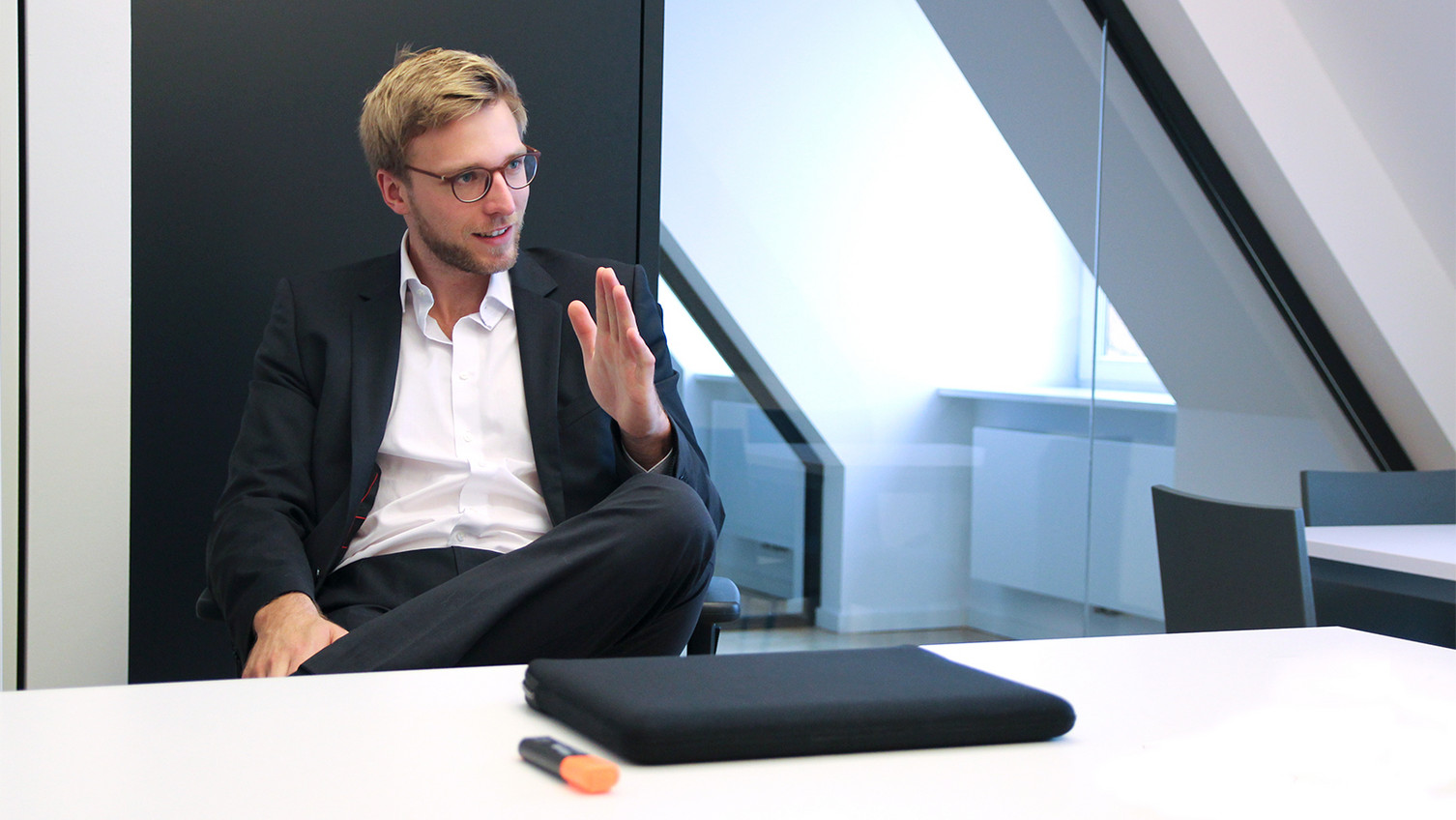Doctoral Track: Dr Jannik Gerwanski - "A unique opportunity"
2020-12-21 The 28-year-old business economist was the first Doctoral Track candidate at Leuphana to successfully complete his doctorate, and he did so with top marks. The programme has not only saved him a year of time. Now careers in business and research are open to him. The Doctoral Track is a further development introduced in 2016 of the Fast Track originally introduced in 2008 with the start of the Graduate School, which created the opportunity to combine Master's and doctoral studies for the first time in Germany and was used.
When Dr Jannik Gerwanski started his doctoral studies three years ago, his doctoral supervisor Prof. Dr Patrick Velte said about him: "He has drive." After combined Bachelor studies (Duales Studium) at the Hamburg School of Business Administration (HSBA), Jannik Gerwanski completed his Master studies in Management & Finance & Accounting at Leuphana. Alongside this, he continued to work at a large credit institution in Hamburg. During his Master's degree, he discovered his affinity for science: "I really enjoyed delving deeply into an interesting and current topic, reviewing scientific literature and analysing data statistically: I wanted to do that in more depth," explains Jannik Gerwanski. Already in his first Master's semester five years ago, he asked Patrick Velte, Professor of Business Administration, especially Accounting, Auditing & Corporate Governance, if he could do his doctorate with him. The researcher was initially reluctant and first checked the student's performance. However, Jannik Gerwanski was so convincing that Patrick Velte suggested the candidate do a doctorate as part of the Doctoral Track programme at the Graduate School. With the Doctoral Track, the Leuphana Graduate School is taking a new approach to the qualification of young academics in Germany. The programme enables particularly qualified students to gain admission to doctoral studies while they are still studying for their Master's degree. With parallel admission to a Master's degree and a doctorate, candidates can already set the course for their doctoral project during their Master's degree and become part of the scientific community at an early stage.
For Jannik Gerwanski, this meant that he completed most of the modules from his doctoral studies, such as philosophy of science, already in his Master's and wrote his Master's thesis on "Integrated Reporting", which later became his doctoral topic. Integrated reporting not only presents the financial business development of a company, but also its sustainable development from the perspective of environmental and social performance. Through targeted bundling, stakeholders should be able to inform themselves better and faster about the company's future value potential. But integrated reporting is time-consuming and costly, and it can be associated with limited objectivity. "Unchecked, a company can write many things into an integrated report. There is a danger of 'green washing'," explains Patrick Velte. To increase the quality of the information, many companies therefore voluntarily have the content of their reports reviewed by independent bodies, such as auditing firms.
In his cumulative doctoral thesis, Jannik Gerwanski investigated, among other things, whether the costly audit is worthwhile. In an experiment, he found that potential shareholders were more likely to invest in companies with an audited integrated report than in those that did without the voluntary audit. Managers, however, assessed the reports differently: "They find integrated reporting quite interesting for image reasons, but do not (yet) see any concrete practical added value in it," reports Jannik Gerwanski. Often it is soft criteria that are listed in the reports, such as a positive influence of employee satisfaction on the economic performance of the company. That is why Jannik Gerwanski, together with co-authors, developed a quality score in another contribution from his doctoral project. "We looked through about a thousand integrated reports and examined whether essential aspects were described: For example, were stakeholders adequately involved? Or did the company deal transparently with possible environmental risks in a management system?" Among other things, this showed that a heterogeneously structured top management achieved better quality scores: "Different perspectives increase the quality of the integrated reports." In fact, Gerwanski was also able to disprove the managers' fears from the interviews about the report review: Integrated reporting tended to improve with a voluntary external audit.
Jannik Gerwanski was supported with a doctoral scholarship from the business community: "I was supported sensationally and I am very grateful for it." Through the Doctoral Track, the economist Jannik Gerwanski had the opportunity to shorten the doctoral period by one year. "I gained a lot of time. I also have the good and intensive supervision by my doctoral supervisor to thank for that. Without the Doctoral Track, I would certainly have needed longer than three years for the doctoral thesis." This is because the doctoral student wanted to publish in a high-quality manner and present his research results at international conferences. "The challenge was great and I always had to stay on the ball," explains Jannik Gerwanski. After a little rest, he rejoined his employer full-time: "The doctorate is viewed very positively there. They are happy that I am now looking with a new, fresh eye at the topics that are also becoming increasingly relevant for us. Sustainability is also becoming more and more important for banks." But the freshly graduated doctor can also imagine going back to academia later: "The doctorate opens many doors for me."

